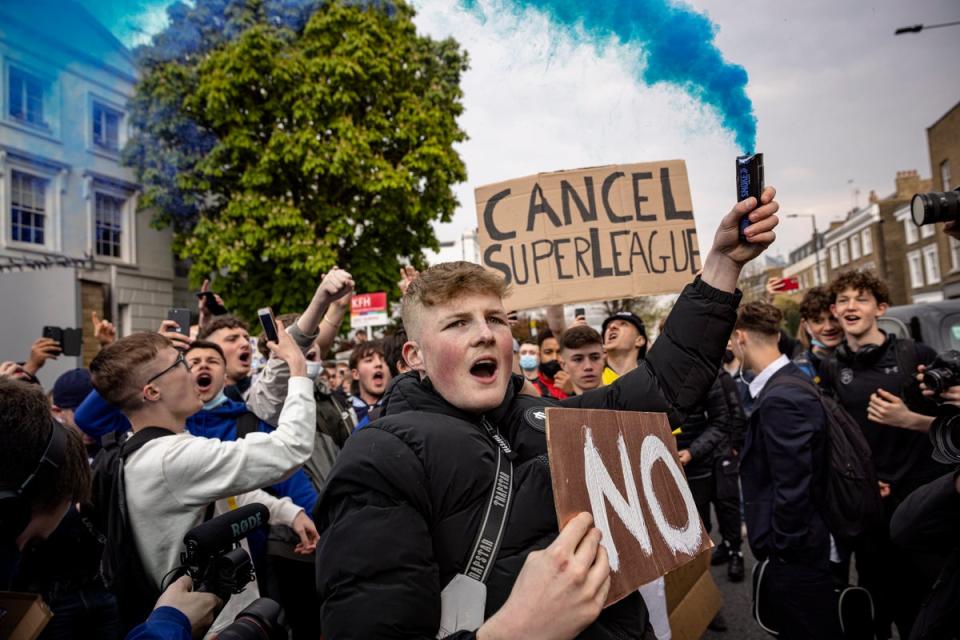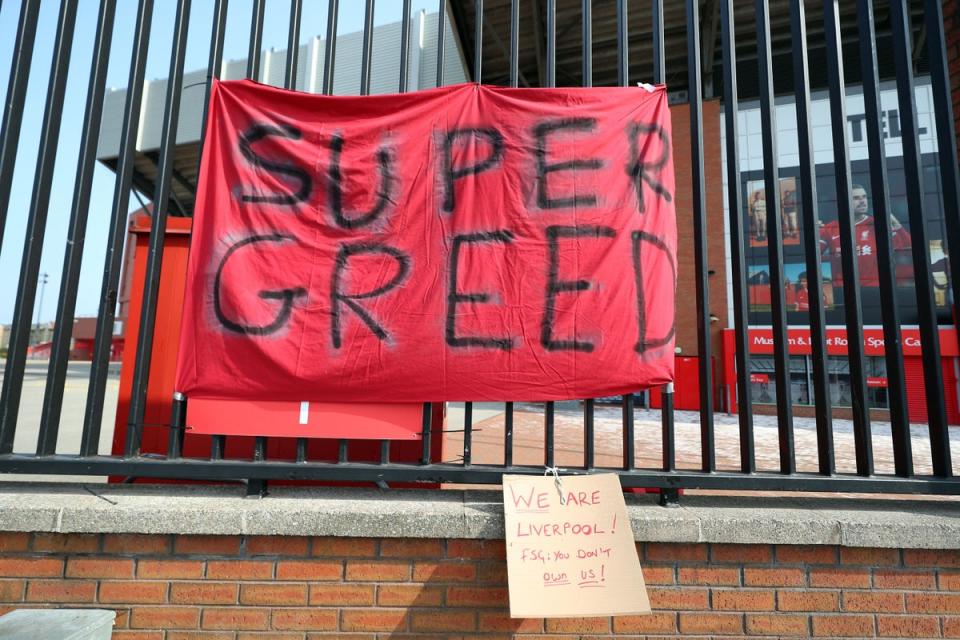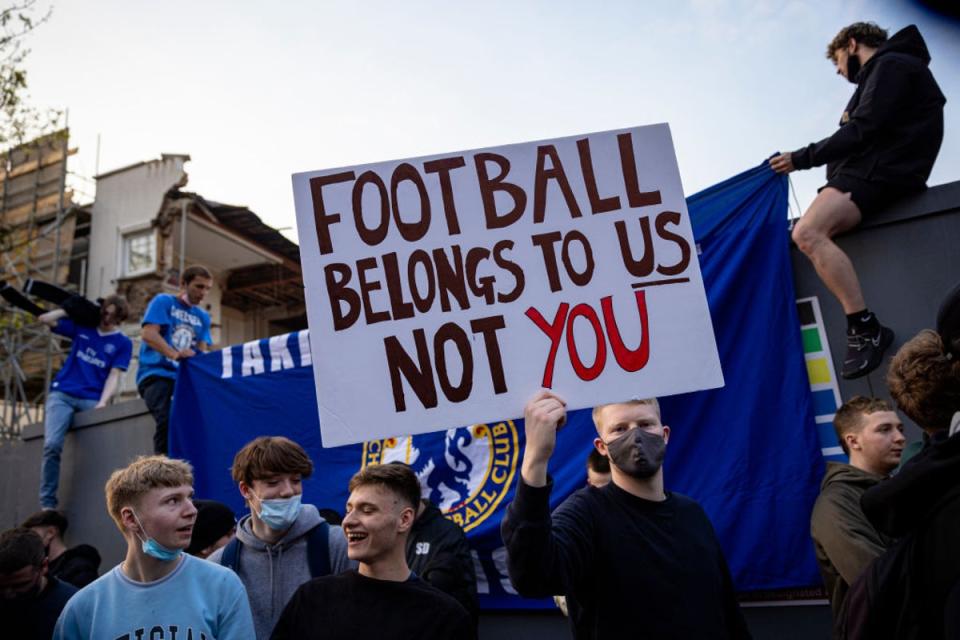Uefa’s ‘total’ victory over European Super League should not hide need for change from within
Uefa has won a victory that virtually everyone in European football is describing with words like “comprehensive” and “total”.
The status quo will not just be preserved if the European Court of Justice [ECJ] follows Advocate General Athanasios Rantos’s opinion, as is expected. It will be strengthened. For now, and at least in this discussion. There might be more to come there.
As regards the main consequences of this counsel, though, the European sports model and the role of federations has been emphatically defended. It was recognised that the rules of Uefa and Fifa do restrict competition but that they do so for a legitimate objective.
Just as interestingly, and more unnoticed, Advocate General Rantos offered a defence of the central and exclusive selling of marketing rights.
The advice went on to even criticise the nature of the European Super League itself, their format and the incompatibility with the European model of sport.
This was something that the lawyers of A22 - the sports management company that the three clubs, Barcelona, Real Madrid and Juventus, are working with - felt they had an avenue to victory through. Many in the game are now commenting on how it seemed to reflect how little grasp they had of the reality of this, how they went down the wrong route.
Some of the absurdity of the case is encapsulated by the fact that Uefa could never really have been described as a monopoly in the truest sense because it has no public power. There was nothing stopping the ESL three going off and setting up their own competition. It just would have required leaving the structure of European and global football.
The Super League side were actually asked why they didn’t do this in the hearing, given they had billions in funding, but they had no answer.

It is why many now feel they wouldn’t take the nuclear step of such a pronounced breakaway, that would essentially represent pirate football. Many clubs need their national leagues, after all.
The wonder is also whether the funding would continue indefinitely, especially without the English clubs.
If the ECJ does follow the Advocate General’s advice - as completely happens in 65% of cases and happens to a significant degree in 25% of cases - it does have repercussions beyond the legal impossibility of setting up a Super League while playing within football’s existing structure.
It will cause many owners and club hierarchies to consider their position. Many in Spanish football feel it could finally herald Real Madrid and Barcelona abandoning their famous “socio” model, where member fans own the club. The uncertainty has undoubtedly influenced the decisions of Fenway Sports Group and the Glazer family to sell Liverpool and Manchester United, respectively. They obviously won’t have had advance notice, but sources close to both believe it was “part of their thinking”.
There is now no quick way for the major clubs to boost revenues.
The structure of European football is set to be preserved.

Some critics - even those who are highly resistant to the ESL project - argue that it could cause it to stagnate, or even be further strangled by other interests.
This after all represents a victory for the European Club Association, too, and their current president is Paris Saint-Germain president Nasser Al-Khelaifi.
The symbolism and significance of this shouldn’t escape anyone. Given how prominent the Qatari national’s voice has been around this World Cup, defending his country’s position and interest, it could be argued that this situation only further pushes the game under the financial influence of such states.
You only have to look at the World Cup final itself, with Lionel Messi and Kylian Mbappe of PSG centre stage, and the club looking to follow this victory either way with the ultimate win in the Champions League.
Uefa badly need to assess the influence of state-run clubs, as well as the multi-club projects that have developed as a distinctly American model. They have a responsibility there.
The widespread belief in the game for some time is that the sport “needs a reset” - just not one driven by a handful of self-interested super clubs.
Perhaps the greatest consequence of this, however, would be that it finally frees football’s authorities from the threat of all this; that they can start to look at resetting the game from within.
Thursday’s developments, after all, spoke to the very spirit of the game. The hearing involved delegates from countries like Norway talking about how the feats of Bodo Glimt in the Europa Conference League still uniquely excite people - that they had a social value.

“Advocate General Rantos’ opinion is an endorsement of the so-called European Model of Sport and the role of UEFA as regulator in European football,” says Dr Borja García, Reader in Sports Policy and Governance at Loughborough University.
“We need to be cautious, though, as the opinion is clear that the proportionality of any rules governing the authorisation of rival competitions is paramount. The onus is therefore on UEFA to ensure its rules regulating the authorisation of a hypothetical Super League do remain proportionate and not discriminatory. The referring Spanish court will analyse that once the CJEU issues its ruling.”
The structure of the game is set to be preserved. It now just needs to be changed from within. Even if this is a “total” victory, it is very far from total satisfaction of where the game is at.

